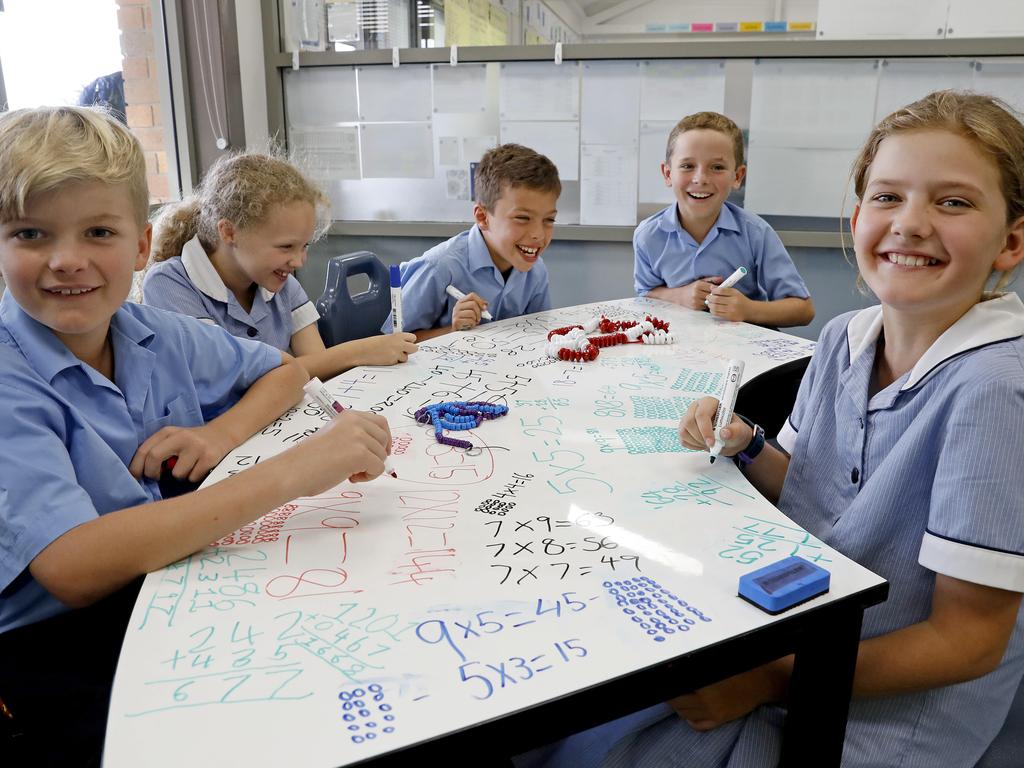Get the fundamentals right, and lift our game

Earlier this week the Australian Curriculum, Assessment and Reporting Authority released its draft proposals on possible changes to the national curriculum for public consultation.
ACARA operates independently of government but under terms of reference set by state, territory and federal governments. The final draft will come to ministers for approval later in the year.
The draft has many good elements, but also some concerning changes that I will not support. There are several principles that will guide my assessment.
First, and most important, the curriculum must set a higher overall standard for educational achievement in Australia.
Australia’s school education achievement standards have fallen markedly during the past 20 years despite a 60 per cent increase in real per-student funding. This is the central strategic problem facing our school system.
For example, an average 15-year-old student today is a year behind in their learning from a 15-year-old in 2000, and 14 months behind in mathematics. They are three years behind an average Singaporean 15-year-old in maths.
Internationally, we have fallen from the top group of education nations to the middle of the pack, with countries such as Poland and Estonia rocketing above us.
I have set a new national goal of returning Australia back to the top group of nations in education standards by 2030. Quality teaching is the key to this, but the curriculum is also vital as it sets the expectations of learning standards for each year level.
ACARA has done a good job at benchmarking our curriculum against leading education nations such as Singapore and Finland and the draft reflects many of the learnings.
It is particularly pleasing to see mathematics standards lifted in the draft. Pythagoras’s theorem, for example, is to be taught in Year 8 rather than Year 9. Percentages will be taught in Year 5 rather than Year 6. I am perplexed as to why some basic concepts such as times tables are pushed back from Year 3 to Year 4 as this goes against the general trend.
It is not realistic to reach Singapore’s standards in this round of curriculum changes, but it must put us on the pathway to improvement.
The second principle is that the new curriculum is decluttered. An overcrowded curriculum is a constant bane of schools and teachers. If we can strip back the curriculum and get a greater focus on the fundamentals, then our core standards in the most important content — such as reading, writing and mathematics — are likely to lift.
My initial read of the draft national curriculum is that it is on the way to achieving this goal. It also sharpens the content descriptions, which will remove ambiguity for teachers.
From a decluttering perspective, a significant challenge is managing the three existing and overlapping dimensions of the curriculum: eight discipline-based learning areas, seven general capabilities and three cross-curriculum priorities. Multiply that out, and it is a big number.
This is not something that all education ministers wanted to change when the terms of reference were set last year and, with consensus not reached, the default remained.
Third, the curriculum must embed content and teaching practices that are evidence based. We have had many years of education fads that now have been proven categorically ineffective.
The teaching of reading is one of the best examples. For many years children were taught whole-language methods to the exclusion of phonics, where you decode words by sounding out the letters. When reading experts such as Jennifer Buckingham raise the alarm on the draft curriculum, we need to proceed cautiously.
Finally, the teaching of history. This will always be contentious and already the draft has rightly sparked debate, as illustrated by the coverage in this newspaper. We have an opportunity to enrich the history curriculum with more emphasis on Indigenous history and Indigenous perspectives. This would be a positive development and build on the progress already made on this dimension. But as our greatest historian, Geoffrey Blainey, has said, it should not come at the expense of the teaching of classical and Western civilisations and how Australia came to be a free, liberal democracy.
Both are important to a rich understanding of our nation’s history. There is more work to be done on this domain.
We live in one of the most prosperous egalitarian societies in the world and children should develop an understanding of how this came about. If we diminish this understanding, we are less likely to protect and defend it.
The draft curriculum is just that: a draft. The public consultation process is under way and I hope that many will make submissions. Inevitably, the final product will not please everyone, but there is an opportunity through this review process to elevate our standards. There are few things more important.
Alan Tudge is the federal Education Minister.





If there is one thing in school education that generates heated debate, it is curriculum changes. And so it should. It goes to the heart of what our children are taught: the content, the priorities and the values embedded in the materials.